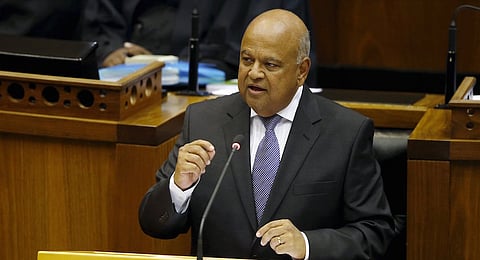Why economic growth really, really matters
Pravin Gordhan reckons South Africa's economy will grow 0.9% this year; the World Bank plumps for 0.8% and the IMF forecasts just 0.7%. Woeful by global standards. And seriously dangerous for a country whose population, half of whom are under 25, is growing at 1.4% a year.
Warren Buffett wrote about the relationship between economic and population growth rates in this year's letter to shareholders. The number of Americans is rising at 0.8% a year – 0.5% from births minus deaths; the other 0.3% from net migration. So although the US economy is expanding at a seemingly modest 2% a year, it's actually a net positive of 1.2% annually for each person who lives there.
Doesn't sound like much, but as Buffett explains "in a single generation of, say, 25 years, that rate of growth leads to a gain of 34.4% in real GDP producing a staggering $19,000 increase in real GDP per capita for the next generation. Were that to be distributed equally the gain would be $76,000 annually for a family of four."
A lovely example of the power of compounding when economic growth is on the right side of population expansion. But inverting the two, as is happening in SA, delivers a warning worth heeding. Failing to grow the economy fast enough to give youngsters the hope they deserve, is unsustainable. Even for the political party that brought liberation.

